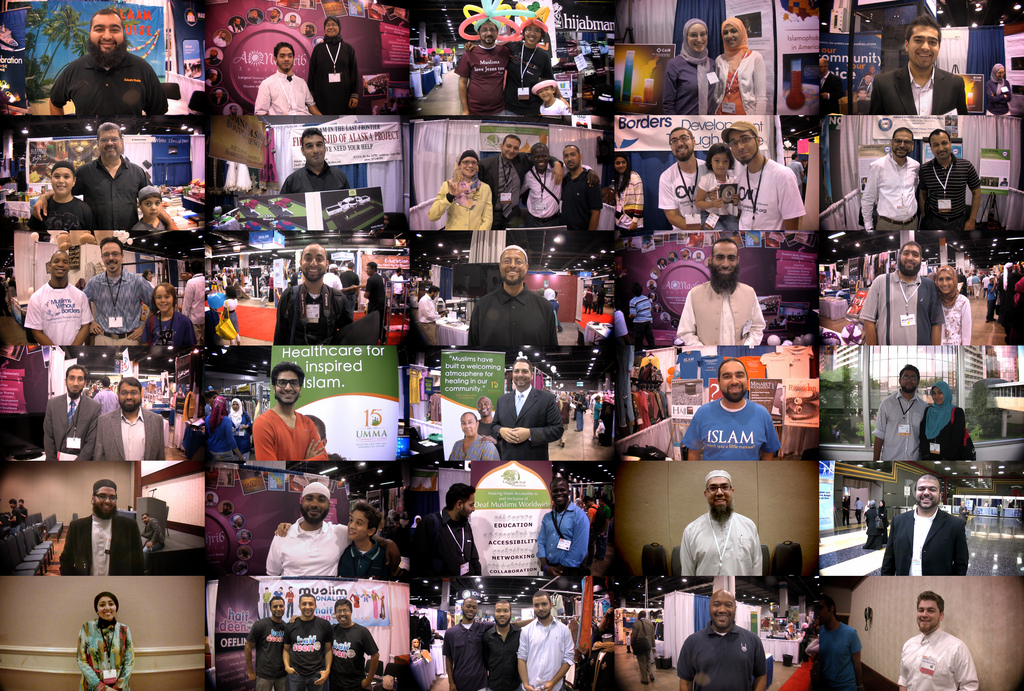The Islamic Society of North America (ISNA) recently announced that it and 60 other faith-based organizations signed a letter in support of the Employment Non-Discrimination Act (ENDA), which was passed by the United States Senate in early November. There has been extensive debate on the merits and impact of the proposed legislation, which has a long and tumultuous history.
ISNA’s endorsement is noteworthy because the bill is widely understood to be an important stepping-stone in the progression of LGBT rights in the US and because ISNA has a long-standing reputation for being socially conservative.
It might seem surprising that ISNA would endorse such a bill considering most major Muslim organizations have thus far shied away from LGBT issues. Nevertheless, ISNA, despite its conservatism, has a history of taking unorthodox steps every now and then. For example, last year it controversially invited a woman, Tahera Ahmad, for the first time, to recite Qur’an at its annual convention. This new announcement made it seem like a major Muslim organization, perhaps the American Muslim organization, was now quietly creeping out of the closet with a whisper of support for LGBT in a common struggle for equality in this country. Upon hearing this, initially, we were elated. Well aware of the influence of ISNA in the American Muslim community, we knew that to endorse anything even tangentially “LGBT” must be monumental.
At the same time we asked ourselves – How could any organization of marginalized people not support ENDA in 2013? Then we read further for ISNA’s rationale for its position and found it to be lacking substance.
While we applaud ISNA for its decisive stance against all forms of discrimination in the workplace, and while we affirm its acknowledgement that even those with whom one might disagree deserve equal protection under the law, we find the way ISNA frames its argument problematic in many ways. The organizational rationale assumes too much, overuses a trite “us” versus “them” rhetoric, and oversimplifies the scope of “discrimination.” By doing so, ISNA shows a lack of engagement with the complexities of contemporary sexual and religious identity. This declaration, while lauded by groups such as the Human Rights Coalition, ends up doing some harm as well to the very people on whose behalf it claims to be advocating.
ISNA’s statement begins by drawing parallels between the hijab and sexual orientation. Hijab, in this case, is a marker of Muslim identity that is used as a metonym for Islam itself, while “sexual orientation” is represented by the curious phrase, “misbehaving sexually”:
We support hijab on the job and we oppose misbehaving sexually off the job, but neither of these justifies being fired from the job.
ISNA is on the right side of the issue by recognizing that job performance should be the only criterion in determining one’s employment status or rank within a company. The use of the phrase “misbehaving sexually,” however, one can assume, refers to queer people on the job. The message is very clear here: being LGBTQ oriented is synonymous with illicit sexual activity. Tabling the complex theological discussion for now, the very assumption that we know what is in someone’s pants or what happens in their bedrooms based on their gender presentation or sexual orientation is precisely what creates a hostile work environment. Calling whatever we think is happening in someone’s bedroom “misbehavior” is patronizing, privileged and aggressive and fuels the kind of discrimination which ENDA aims to eliminate. Furthermore, discrimination is so much more than being fired from your job; it is about being able to work comfortably in a safe space without judgmental glares or derogatory slurs being lodged at you or constantly having to defend yourself against others’ assumptions about you.
We were also disappointed with consistent usage of “us” versus “them” rhetoric throughout the statement which again, we believe, fuels discrimination.
We differentiate between someone’s lifestyle and belief system, and their right to express or believe whatever they would like to believe. At the same time, we defend and preserve our right to disagree with them in their lifestyle.
ISNA seems to show here that there is a difference between the organization’s moral values in terms of rights and expressing one’s authentic identity. The unspoken assumption is that ISNA represents a monolithic Islam against a queer “other” – completely leaving the many Muslims who are also LGBTQ-identified in the dark.
Lastly, we take issue with the collective tone conveyed in the statement and believe this does a disservice both to American Muslims and to those who struggle to understand the reality and complexity of the Muslim community. ISNA is often viewed as the organizational face of the American Muslim community and we give it a bit of credit for, at least, trying to be pragmatic in its apparent public rebranding. Still, as an institution it cannot represent everyone’s point of view when it comes to controversial issues such as the relationship of Islam, ethics and sexuality. ISNA repeatedly invokes the community’s interest, and we suggest that the community’s interests would be best met by shifting our ways of thinking about who has the right to define these interests. Simplifying issues and presenting black-and-white moral arguments might seem to be concise, but it further risks perpetuating unhelpful stereotypes of Muslims. We have worked with other major American Muslim organizations and know that there is unconditional support for LGBT people behind the scenes and among many (though certainly not all) social justice-minded Muslims. We hope that more of those will be more outspoken with such organizational stances.
Photo Credit: Belal Khan
Nabil Khan is a graduate student at Harvard Divinity School, originally from Abu Dhabi and now based in Pennsylvania. He is interested in the intersections of religion and medicine. Magda Mohamed is a Masters of Divinity student at Harvard Divinity studying Islam, gender and sexuality. She hails from Rockford Illinois, and spent time in Chicago working as a political and community organizer before relocating to the Boston area.




